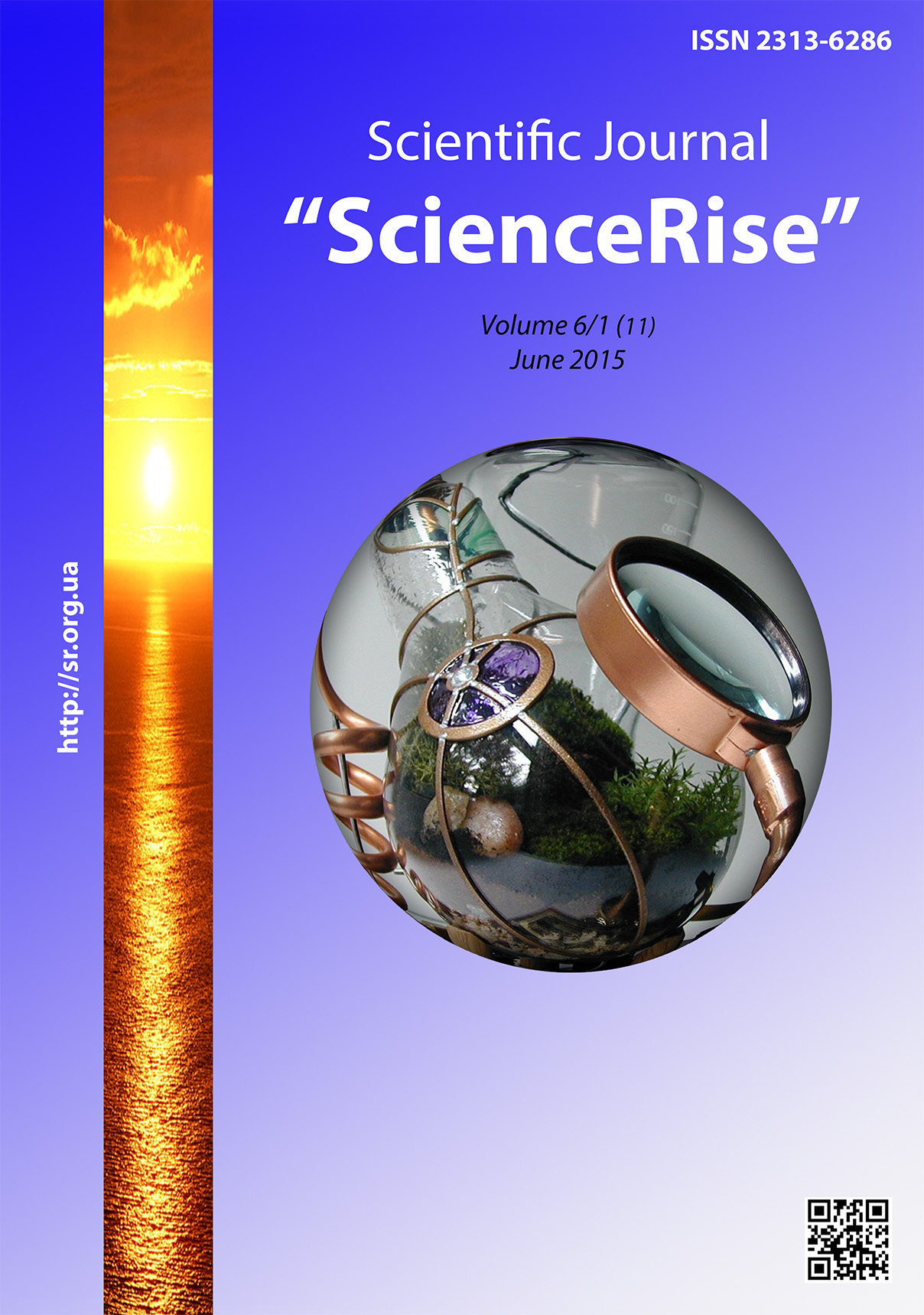Впровадження інтегрованих курсів в здоров’язбережувальне навчальне середовище початкової школи
DOI:
https://doi.org/10.15587/2313-8416.2015.44831Ключові слова:
здоров'язбережувальне навчальне середовище, природничонаукові знання, інтегроване навчання, інтегровані уроки, здоров'я учнів, середовище життяАнотація
Зазначається про доцільність впровадження інтегрованого природовідповідного курсу «Довкілля» в навчально-виховний процес загальноосвітніх навчальних закладів, необхідність впровадження інтегрованих уроків при організації здоров'язбережувального навчального середовища школи. Звертається увага на проведенні інтегрованих уроків під відкритим небом, зокрема уроків серед природи,в зеленому класі. Ознайомлення з досвідом впровадження природовідповідного курсу «Довкілля» в загальноосвітніх закладах Полтавщини
Посилання
Bazarniy, V. (2013). Healthy Deti - buduschnost nation! Narodnoe education, 2, 15–21.
Vashchenko, O., Sviridenko, S. (2006). Zdorov`yazberihayuchi technology in schools. Headmaster, 20, 12–15.
Goose, С. (2004). Theoretical and methodological bases of formation of students' knowledge about the integrity of nature. Poltava: Environment-K, 472.
Ilchenko, V., Goose, C. (1999). Educational program "Environment": Conceptual Foundations content integration science education. Kiev; Poltava: POIPPO, 123.
Kozak, I., Kozak, N. (2012). Еfficiency zdorov'yazberezhuvalnyh implementation of educational technologies (for example CEI m. Kremenchuk and Kremenchuk, Poltava region). Postmetodyka, 5, 18–25.
Komendar, V. (1994). Problems of environmental education youth teach. guidances. Uzhgorod: VVK "Patent", 15.
Podhornaya, O. (2005). Designing zdorovesberehayuscheho of space obscheobrazovatelnoy school funds personality-oriented education. Tiraspol, 211.
##submission.downloads##
Опубліковано
Номер
Розділ
Ліцензія
Авторське право (c) 2015 Надія Іванівна Шиян

Ця робота ліцензується відповідно до Creative Commons Attribution 4.0 International License.
Наше видання використовує положення про авторські права Creative Commons CC BY для журналів відкритого доступу.
Автори, які публікуються у цьому журналі, погоджуються з наступними умовами:
1. Автори залишають за собою право на авторство своєї роботи та передають журналу право першої публікації цієї роботи на умовах ліцензії Creative Commons CC BY, котра дозволяє іншим особам вільно розповсюджувати опубліковану роботу з обов'язковим посиланням на авторів оригінальної роботи та першу публікацію роботи у цьому журналі.
2. Автори мають право укладати самостійні додаткові угоди щодо неексклюзивного розповсюдження роботи у тому вигляді, в якому вона була опублікована цим журналом (наприклад, розміщувати роботу в електронному сховищі установи або публікувати у складі монографії), за умови збереження посилання на першу публікацію роботи у цьому журналі.

